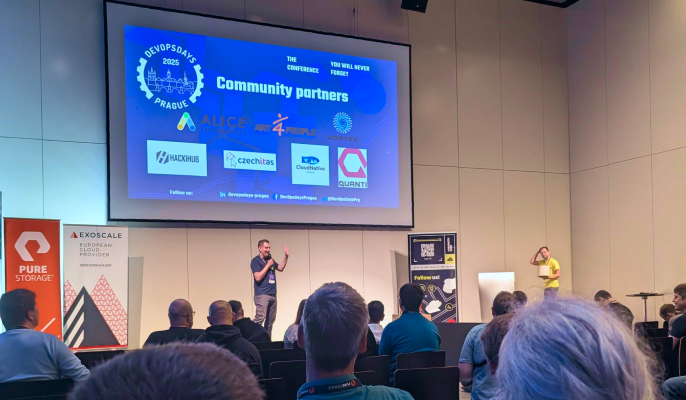Just a few years ago, it sounded like science fiction.
Today, however, quantum computers are starting to appear in the business world. And that’s exactly what we talked about in the new episode of our podcast Poqec with Quanti’s CEO, Václav Podlipný.
Quantum computer? What is it actually?
While conventional computers work with zeros and ones, quantum computers use so-called qubits instead of bits These can be both zero and one at the same time (thanks to a phenomenon called superposition).
And not only can they exist in multiple states simultaneously, but they can also process many computational paths in parallel (through a phenomenon called entanglement).
This dramatically accelerates certain computational tasks, such as molecular simulations, optimization problems, or breaking encryption algorithms.
So what does this mean in practice?
As Vašek says: "...in some cases—like simulating complex molecules or performing optimization calculations—quantum computers can solve them in minutes, while classical ones would take decades or even centuries."
Where does it make the most sense?
- Financial sector: optimization of investment portfolios or risk calculations
- Pharmaceuticals and materials research: molecular simulations and designing new compounds
- Logistics and optimization: complex problems with a massive number of variables
Some companies are already building their business on quantum computers today. We’re starting to see real-world applications—for example, in banking.
But what about the dark side?
Because quantum computing is so extremely fast and powerful, it also brings new risks.
One of the main concerns is the potential to break current encryption algorithms—the very technologies that protect our data, accounts, and all online communication.
That’s why a new field is emerging: post-quantum cryptography.
At the same time, new security methods are being developed that harness the principles of quantum physics themselves—such as quantum key distribution (QKD), which, due to its nature, is virtually impossible to eavesdrop on.
Where are we today and where are we heading?
Quantum computers are not yet a common part of corporate infrastructures.
But development is advancing rapidly.
Companies like IBM and Google are working to make quantum computing accessible via the cloud, and the first specialized tasks are already running—for example, in finance or pharmaceutical development.
Today’s quantum chips typically contain only about 100–200 qubits, yet that’s enough to solve problems that are practically unsolvable by classical computers.
For comparison: traditional chips have billions of transistors (Apple’s M2 chip, for example, has over 20 billion), and still—in specific cases—a quantum machine comes out on top.
So what will the future look like?
Access to quantum computing will become more widespread—primarily via the cloud, without the need to own expensive hardware.
Even in the Czech Republic, progress is underway.
In Ostrava, the first quantum computer for research is being developed under the European consortium LUMI-Q, giving the Czech Republic direct access to this cutting-edge technology.
And that’s a big leap forward.


.svg)
.png)





